Somewhere Near Tapachula
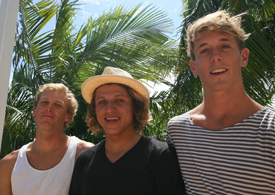 As I entered the penthouse suite of the Emerald Hotel in Noosa – aka Global Surf Industries’ HQ for the duration of the festival – two fair-haired arty types were in deep in discussion.
As I entered the penthouse suite of the Emerald Hotel in Noosa – aka Global Surf Industries’ HQ for the duration of the festival – two fair-haired arty types were in deep in discussion.
The guys in questions are Stefan Hunt and Jonno Durrant, who are currently touring Australia with their second movie ‘Somewhere Near Tapachula’, a documentary about Mision Mexico, an orphanage owned and run by an Australian couple, Alan and Pam Skuse, who care for around 50+ Mexican children.
The movie itself is a emotional ride, telling the tale of how MM came about, sharing the deeply disturbing stories of some of the orphans, but also exploring how surfing has helped the children cope with their hardships, and how the wider surfing community has welcomed this new family with open arms.
A non-profit movie, funded by Hurley and GSI, everyone involved hopes that ‘Somewhere Near Tapachula’ helps show how surfing can make a positive impact on some of the most isolated parts of the world.
…I took a seat in the conversation and caught up with Stef and Jonno to find out how the film was being received…
Drift: I just saw ‘Somewhere Near Tapachula’ at Surf City (an event running alongside Noosa Longboard Festival) and was really moved by the whole thing. At what point did this turn from a volunteering trip into a movie?
Stefan: Mision Mexico ordered a copy of our first movie [‘Surfing 50 States’] for their surf club. A few months later I was researching a surf trip in Mexico and thought of them and decided to volunteer for two months. Within a week of being there and hearing both the story of setting up MM and how it has changed the children’s lives I knew I wanted to make a documentary. I called Jonno and he quickly got on the case rustling up equipment. Within a month he had joined me and we were filming. There was no pre-production, no storyboards, we just jumped straight in.
Drift: It’s a bit of a different angle from the humour and adventure of your first movie – was that a challenge?
Jonno: Yes. We could’ve easily focused on the surf and the pros coming down to teach them. But it was bigger than that, it wasn’t just going to be a surf movie. We wanted the orphanage to be the main story, using the surf to tap into that genre and the ethos it is founded upon. We also used the surf scenes to break up the movie when it got deep and heavy; we didn’t want it to end up being depressing.
Stefan: Yeah, we wanted to show surfers how lucky we are, especially in Western society. We take life and surfing for granted. You’ve got people leaving work with stress and heading to the water to clear their heads and relax – MM is that kind of vibe but on an intense level. Surfing is helping these kids escape from the harsh realities of their pasts.
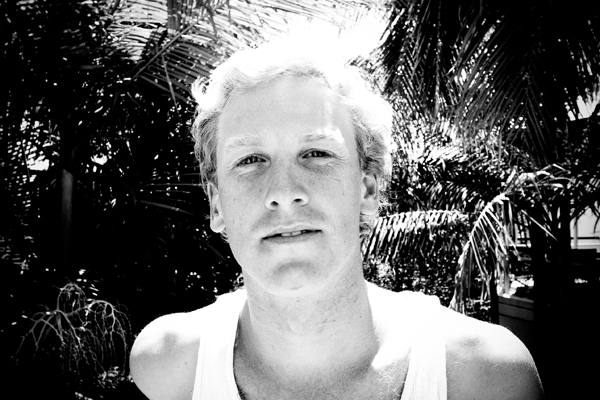
Drift: It’s obviously quite a deep story – how has the experience affected you guys?
Jonno: It’s been life changing. Even just the volunteer aspect of it. Every time we watch the screenings it still gets emotional; we were there, we filmed it, but it’s still so raw. It makes you appreciate what you have in Oz. We bonded with the all the kids and I don’t think that will ever leave us.
Stefan: We were there for three months, filming and helping out. In that kind of time you get to know everyone and all their stories: it’s a heavy mixture of sadness for what they’ve been through and happiness for what their prospects now are.
Drift: So when did it go from making another movie to a full-scale fundraiser?
Stefan: Right from the start. It was the inspiration behind the film. Volunteers come and go from this place, many of them volunteer because they’re not in a place to help financially – I certainly wasn’t. We wanted to help them further – long term. And as a not-for-profit film, that’s what we’re doing.
People keep referring to the film as a project – I don’t think that’s the case. It’s a cause, we just happened to end up filming it. Like I’ve said before, there was no planning – it just evolved naturally.
Jonno: And once we spread the word about what we were creating and the fact it wasn’t for profit we had a lot of people chipping in – they wanted to do their bit to help. The tour was pretty much organised for us, there’s all these screenings that want to spread the message and all we have to do is turn up.
Drift: Funding wise you have some pretty big names behind you, both financially and for the soundtrack – how did you get them on board?
Stefan: Hurley have been involved with us since our first movie. When we approached them they were super keen and really supportive. GSI had already been involved with MM, donating heaps of boards and equipment to them even before we’d heard of it – for them helping out the movie was a natural step from that. They [GSI] had already seen the impact they’d made, and they wanted to raise awareness further. Between them, both companies covered all our costs – so every $ goes back to helping MM. It’s a win-win situation on everyone’s part.
Jonno: Music-wise the artists were also supportive. We’ve got some big names in there such as Jack Johnson, The John Butler Trio and The Beautiful Girls. A lot of those people already have their own charities and were more than happy to donate their music – the whole soundtrack was free.
Stefan: That was a massive load off our minds. We learnt from ‘Surfing 50 States’ how complex the copyright with music is. We could only use indie music! Also having big names such as Jack on the soundtrack always broadens the audience, which meant more people to spread the word.
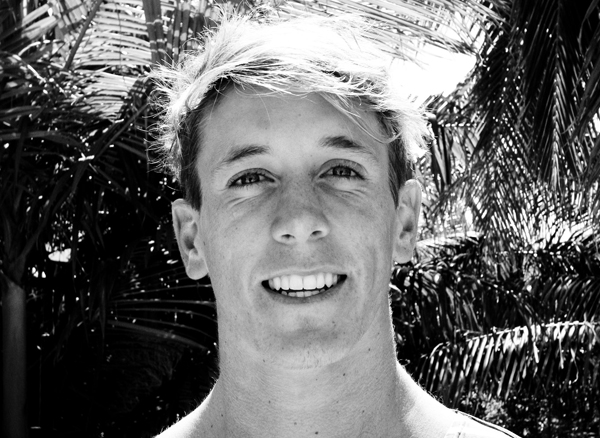
Drift: You’re halfway through the Australian tour – what’s the feedback been like?
Stefan: It’s been raw, completely mind-blowing. It’s amazing how touched people have been by the whole thing – there’s tears at every screening.
Jonno: It was everything we’d been hoping and expecting due to the nature of it, but it’s gone even further than we thought. We’ve already raised over $50,000 for MM, so we’re set to smash our $100,000 target. People have been so generous.
The Tim Baker quote caught us well off-guard too – to hear our work described as “possibly the most important surf movie of our generation” got us really stoked. It’s also helped us as filmmakers, which we will obviously utilise further down the line on our next film and also boost the profile of MM.
Drift: Do you wonder about the knock-on affect the project could have – obviously there are potential positives and negatives.
Jonno: It’s weird viewing it as a project, I mean there isn’t a real start or end to this, we’re always going to be in touch with MM. I guess the main worry is obviously spoiling the empty surf where MM go. But we’ve been there, it’s a whole isolated coastline of empty waves – it isn’t going to get crowded in a hurry!
Stefan: Yeah, MM only really hit three breaks round there, so I don’t worry about that.
We have been speaking to Mo (one of the orphans, who’s now studying on the Gold Coast at University) and discussing the ways he can utilise the exposure – possibly setting up a surf camp and getting some cash in from tourism and westerners wanting to surf empty breaks. The only issue is he’s here in Oz, he’s seen how crowded places like Snappers and Noosa get – he doesn’t want to turn it into the Goldie!
On a major plus though, MM is packed out with volunteers now – they don’t have any places until well past September, which is brilliant!
Drift: People who hear about the story or watch the film are going to want to help out – any advice?
Stefan: There’s a few ways – obviously the first is financially, but not everyone can – so time is the next best thing. If you can – go volunteer. Sharing the story yourself is just as good, pass it on, share the stoke.
But it’s not just about MM. We want the film to help people realise that surfing can help everyone, even spending an hour helping out in your local town is just as good – we just want people to help anyone less fortunate than themselves.
Drift: You’ve obviously got the next few months tied up with screenings and such like, but are there any new projects in the pipeline? Are you taking a break from the heavy stuff for a bit or sticking with the documentaries?
Jonno: We were actually batting around ideas when you turned up! We quite fancy going back to the States concept again. I fancy hitting Japan but Stef seems set on India.
Stefan: Yeah, we’re taking a slight break from the heavy stuff. It’s been great and we’ve learnt a lot from it all, both professionally and personally. But it’s also a not-for-profit film. We want to get something commercially saleable done to help fund our next fundraising film – and if we go to India I’m sure we’d find our next Tapachula along the way.
Jonno: I think a lot of our movies will contain the Tapachula feeling from now on, even if it’s a small segment where we take some local kids to the beach.
We’ve also talked over the idea of making MM a long-running thing: there are so many stories and paths to follow – Mo coming to Oz is one of them.
Stefan: I think if we can build on the success of SNT it will mean we can produce better movies, which in the long run will mean we can help a lot more causes.
For the moment though it’s all just drawing-room talk – SNT still has a lot of life in it…
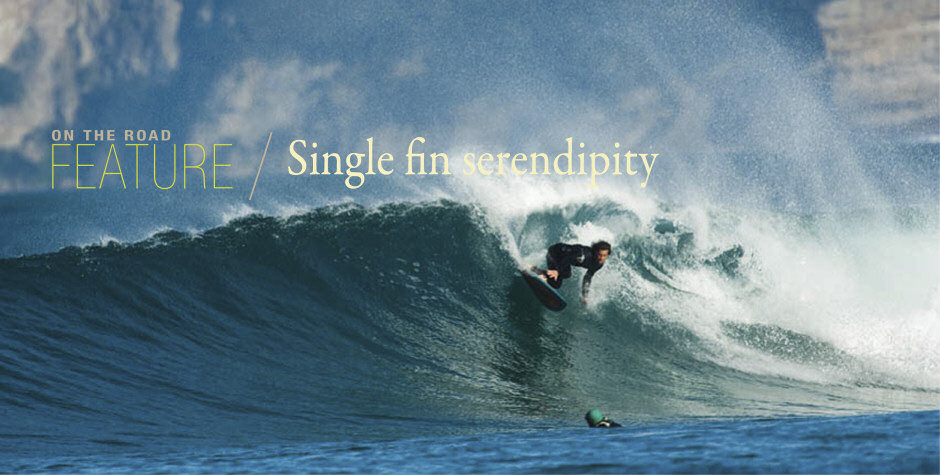
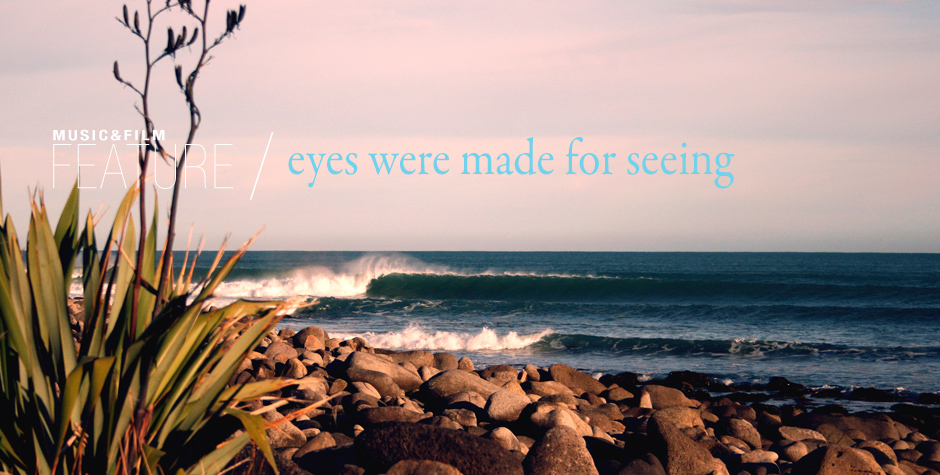
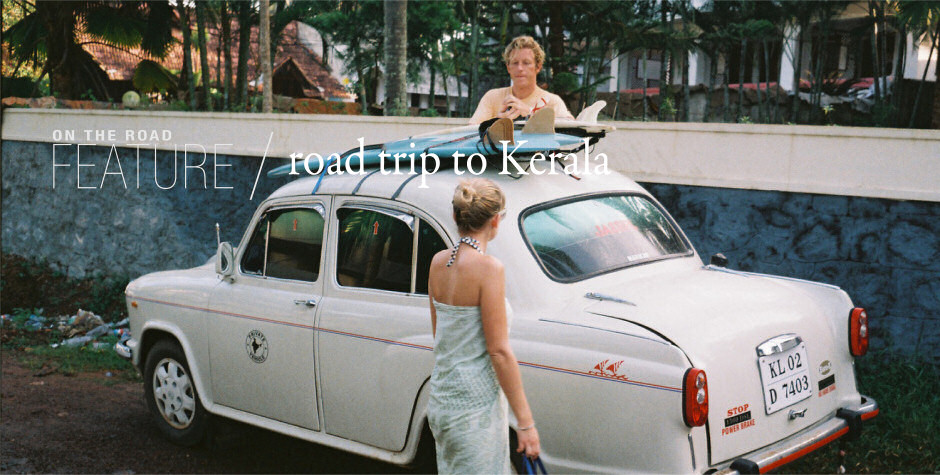
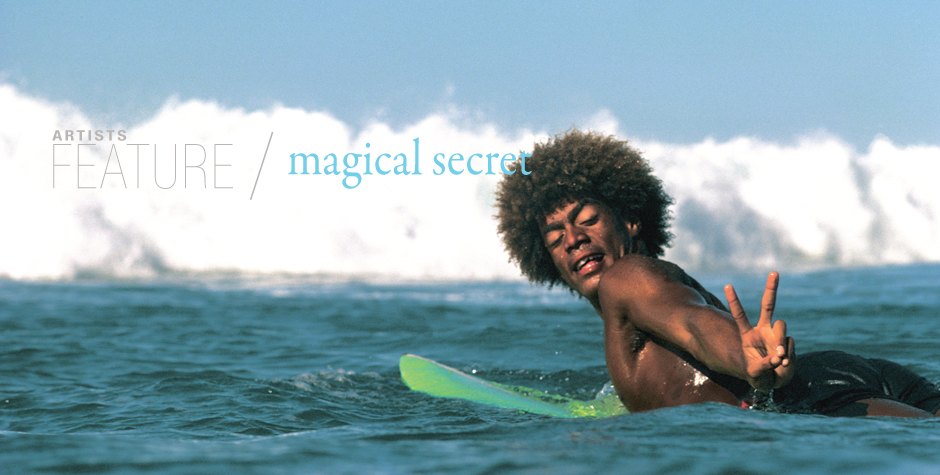
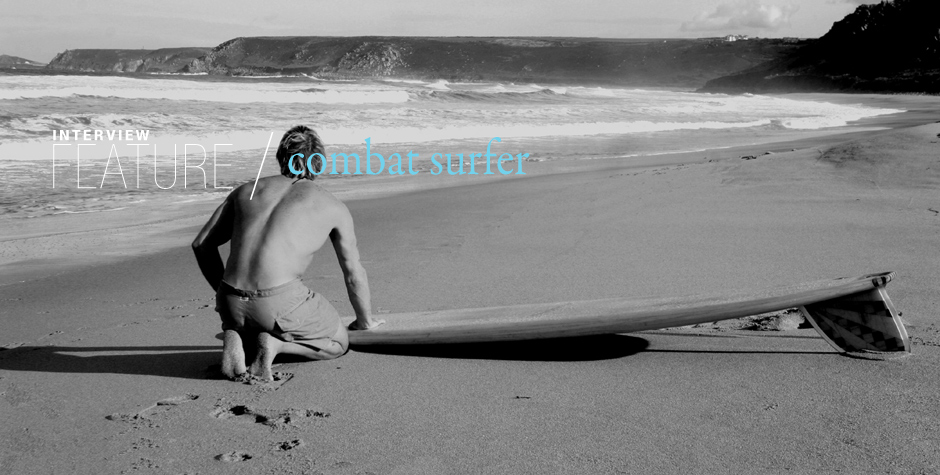
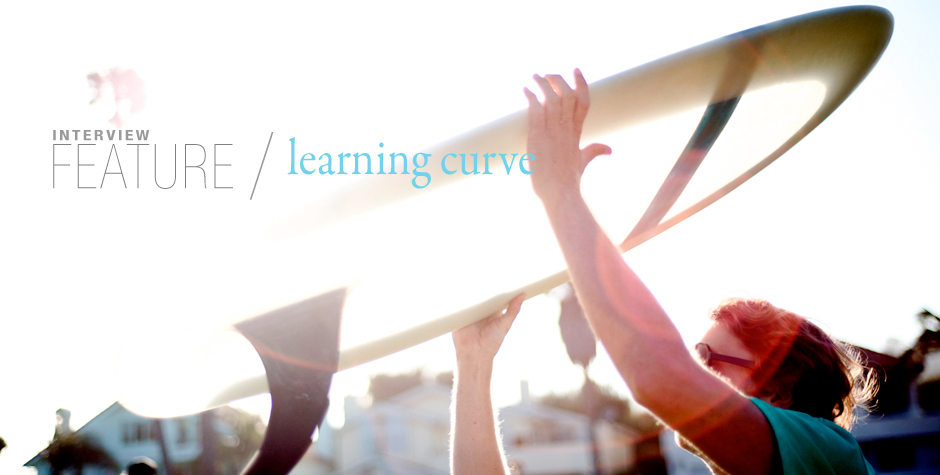



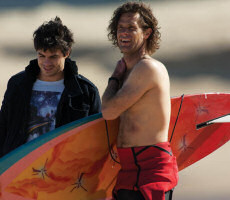
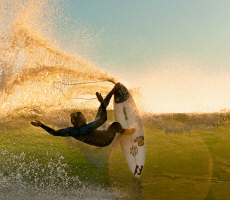
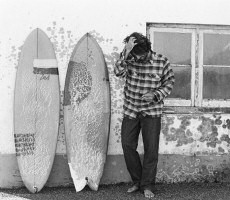
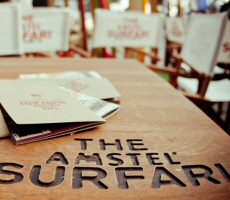
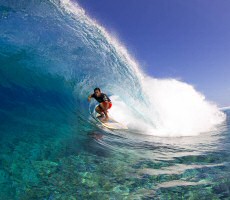








We live in Newport RI, USA, where there is a vibrant surf community.
We would love to help out and get a screening here for you of Mision Mexico.
I believe we have one venue, an old operating large theatre that would be perfect for a fund raiser.
Please let us know.
Sincerely,
1Patrick Toohey
I really like your movie…
call me if you guyes need some surf graffiti pics ( stencils. )
2